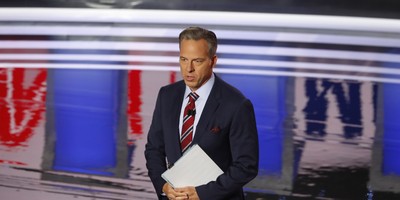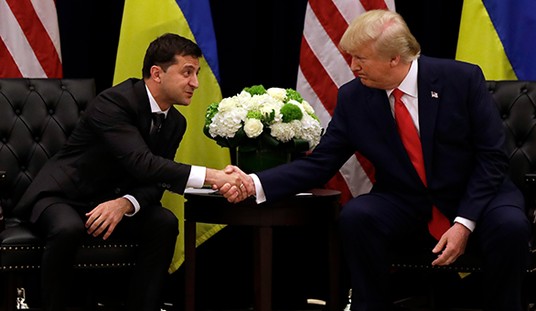Saudi Arabia: King Abdallah died. His half-brother Crown Prince Salman is King and his brother Muqrin is the new Crown Prince, Neither man is young, but the succession is clear for now.
Special comment: Be prepared for policy changes. The instinctive reaction of living systems is to contract during times of internal stress, and even more so during a leadership crisis. Leadership transition is a time of vulnerability. Most systems increase their defensive vigilance during that period.
Applying that to Saudi Arabia, guards will be extra vigilant to protect the new King and the Crown Prince. Restrictions on population movements and border controls usually tighten. Dissidents and miscreants usually go to ground for a while.
The protective and defensive instinct also applies to policies. That instinct ensures the continuation of the bedrock principles of a state, but not necessarily more discretionary initiatives. In Saudi Arabia, the monarchy, Wahhabism, the tribal heritage and oil are four of the bedrock principles. Experiments in modernity are expendable.
The emphasis in a leadership transition always is stability because when a King dies, the Kingdom can be at risk. Abdallah did all that a reigning monarch can do to protect the monarchy. Readers must expect that his policies and programs will be modified, assuming they survive at all.
Under Abdallah, Shiism expanded more than at any recent prior time. This was not necessarily because of any failure of Saudi policy, but the King could not stop the spread of "heresy" that others facilitated. Iraq came under more open and direct Iranian influence. The Baathist/Alawite government in Syria survived. Lebanese Hizballah emerged as into a regional influence beyond the borders of Lebanon. Hamas lost a war with Israel, but did not return to the Arab fold. Egypt's Mubarak, a strong and steady ally, was overthrown in a phenomenon called the Arab Spring.
Recommended
Many analysts in the Middle East say the US was the driving force behind the Arab Spring which destabilized important countries in the Middle East. Democracy enabled the election of the Muslim Brotherhood to political office in Egypt and a sympathetic Islamist party in Tunisia. The Arab Spring unleashed tribal competition in Libya that destroyed Libya as a state, right after Qadhafi finally moderated his policies and mended relations with the US.
A new Saudi King might conclude that the US-backed attempt to overthrow Asad in Syria backfired by expanding Iran's regional importance. Worst of all, the distraction of the Arab Spring diverted the Kingdom's attention from the metamorphosis of al-Qaida in Iraq into the Islamic State of Iraq and the Levant and its declaration of itself as a caliphate and the leader of Muslims.
Abdallah's foreign policy legacy can be understood as producing a succession of setbacks for Sunni Arab causes and a succession of qualified victories for the Persian ayatollahs. A new King, concerned about stability, might question the value of the US relationship as it existed when Abdallah was King because American policy decisions contributed to the expansion of the power and influence of heretics and takfiris, in a Sunni Arab perspective.
Domestically, Wahhabi imams might argue that King Abdallah was far out in front of his people, meaning he was out of touch. His attempts to promote modernity - promoting co-education, giving women limited voting rights, and hosting inter-faith councils, for example - undermined the moral authority of a devout Islamic monarch.
The legacy of King Abdallah is beyond praiseworthy in a Western tribute. He did more to modernize Saudi Arabian culture than most of his predecessors. He was a dependable ally to the US in fighting Islamic terror. He was a good man.
Saudis might draw other conclusions. Saudi influence contracted under Abdallah and the enemies advanced. The US withdrew prematurely from Iraq. The US failed to back a program of overthrowing the Alawite abomination, in a Sunni view, in Damascus. Abdallah could not prevent or mitigate the effects of these actions by the Kingdom's closest Western ally.
A new King will be prone to fall back on the bedrock principles of the monarchy. Policies will be reevaluated. Relationships with the US will not be the same. Relationships and policies inside the Kingdom will also become more protective and, thus, more conservative for now.
Changes in the US relationship, in attitudes towards Islamist terrorism, in attitudes towards Iran and in women's rights in the Kingdom will be important indicators of the policy orientation of the new King. Even if the King is inclined to promote the policies of Abdallah, NightWatch judges the Saudi system will swing towards fundamental values and conservative practices.
Yemen: President Hadi submitted a letter of resignation to parliament. He reportedly wrote that the country had reached a dead end. Parliament has not yet accepted the resignation and will deliberate it when it convenes on 25 January, according to the official news agency.
The Houthis control the capital, but have been careful to state that they have not taken over the government and will not comment on the situation until after parliament makes a decision. The Houthis consider Hadi the president of the country still.
Comment: Few news outlets have reported that one of the major Houthi grievances against the Hadi government is that the draft constitution would establish a federal state in Yemen. The leader of the movement, Abdulmalik al Houthi, insists on a unitary state because federalism promotes the creation and legitimization of regional fiefdoms.
Hadi's draft constitution would have legitimated regional powerbases, including one or more Sunni states in the south, pro-Saudi tribal states in the east and the Houthis in the north. The political arrangement was rigged to favor the Sunnis under former president Salleh and under Hadi.
The Houthi leaders do not want to be seen as seizing power because that would lead to a Sunni uprising; deny them a share in oil revenues - the oil fields are in Sunni territory-- and increase the risk of fragmentation of the state. It also would have large international consequences, especially involving relations with the US, Iran and Saudi Arabia.
All the elements of a government takeover are present in the situation (Group, Gripe, Guns, Plans, Wheels and Opportunity), but the Houthis seem to have a plan that does not require them to govern and deflects Sunni outrage for a while.
The followers of al-Houthi are Zaidis, a branch of Shiism. A Houthi government in Sana'a would represent the third pro-Iranian government in Arab countries. Establishment of another Shiite, pro-Iranian government in the Middle East would be incendiary in Yemen and in most Sunni Arab states.
It would be no surprise to learn that the Iranians counseled the Houthis against a government takeover. Iran stands to become the big winner from developments in Yemen, provided the Houthis can avoid civil war.
Today there have been only a few reports of protests. Violent protests are highly likely in the next few days.
End of NightWatch
###
NightWatch is brought to readers of Townhall Finance by Kforce Government Solutions, Inc. (KGS), a leader in government problem-solving, Data Confidence® and intelligence. Views and opinions expressed in NightWatch are solely those of the author, and do not necessarily represent those of KGS, its management, or affiliates.
A Member of AFCEA International

























Join the conversation as a VIP Member